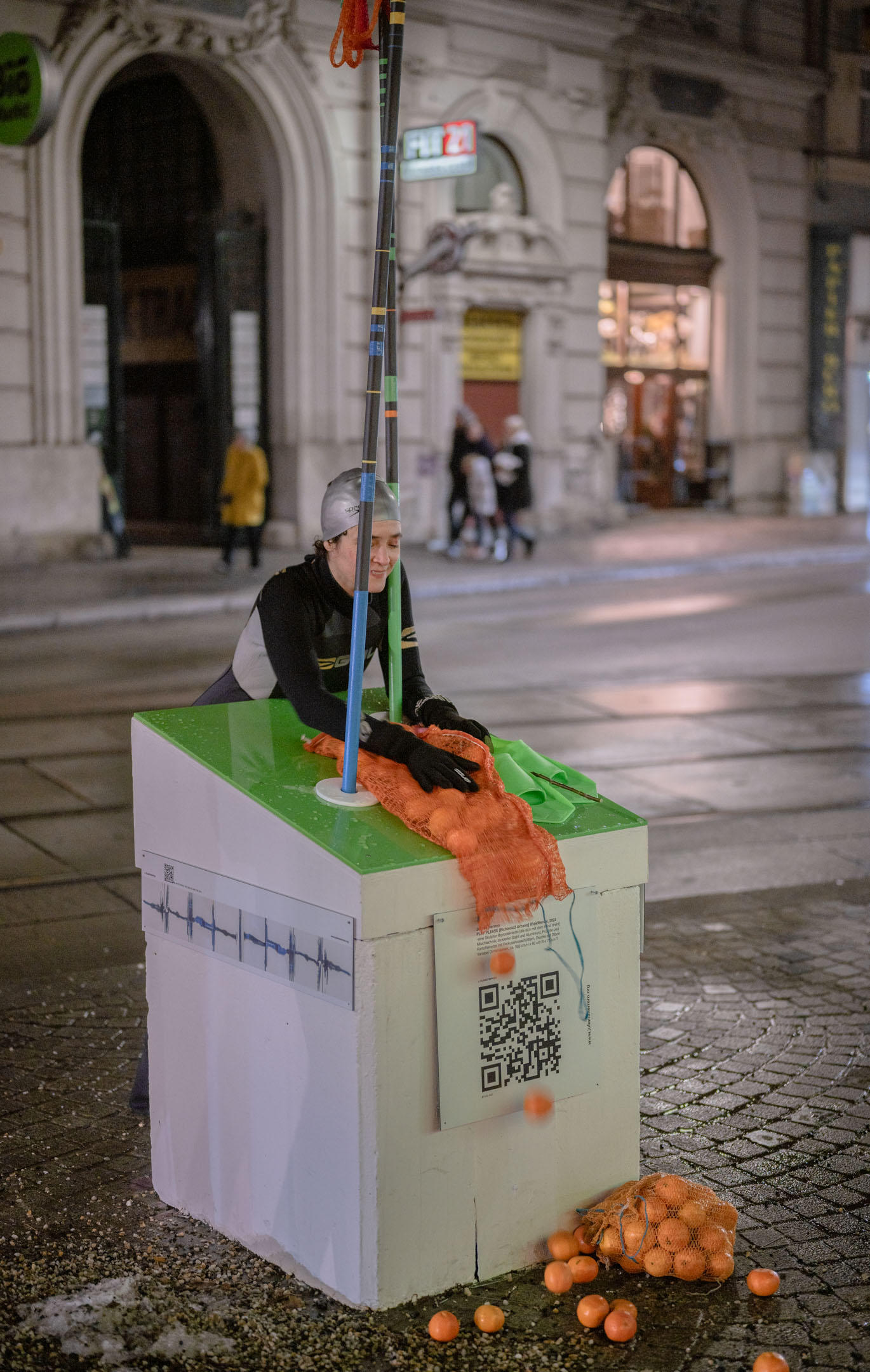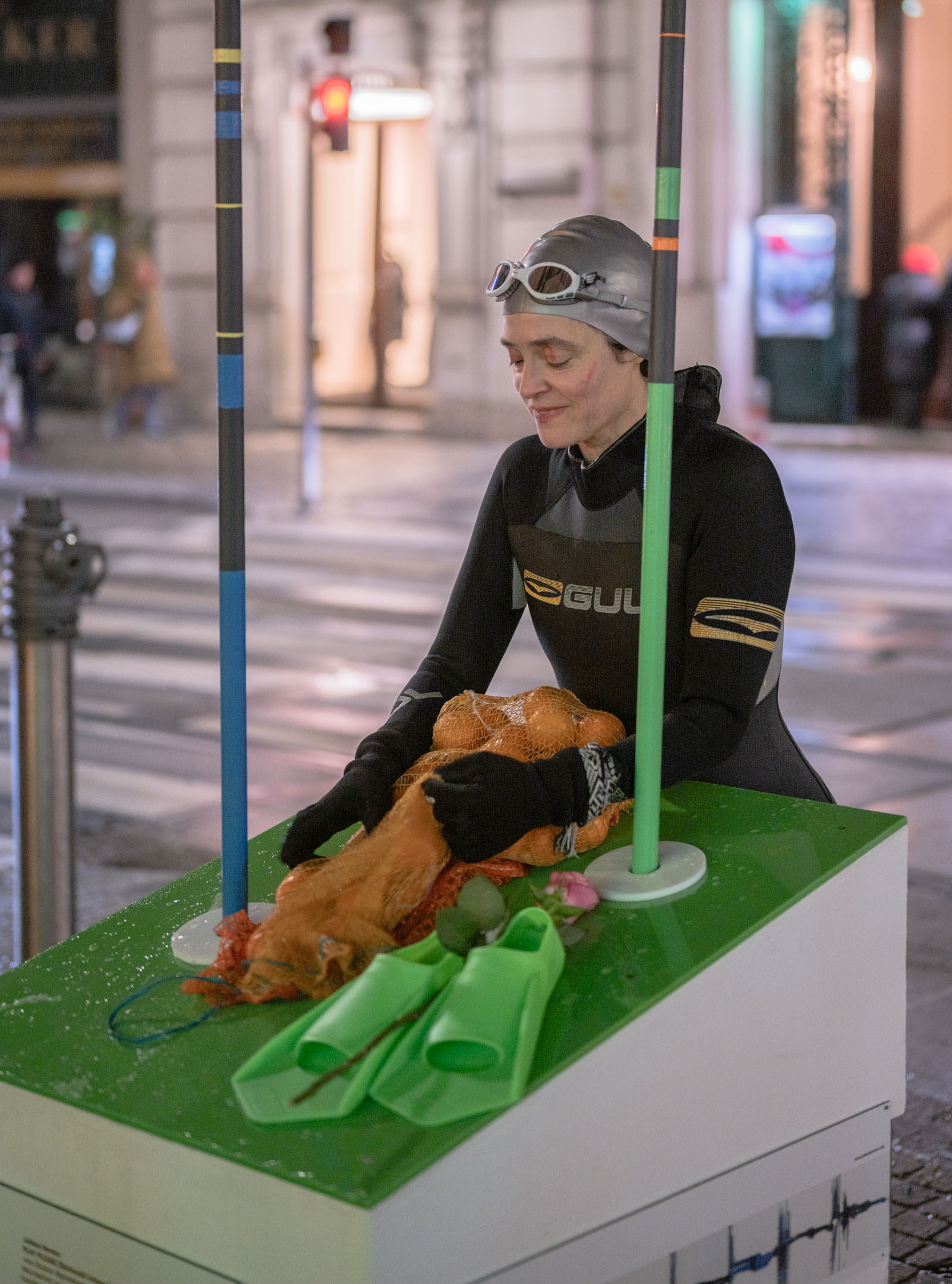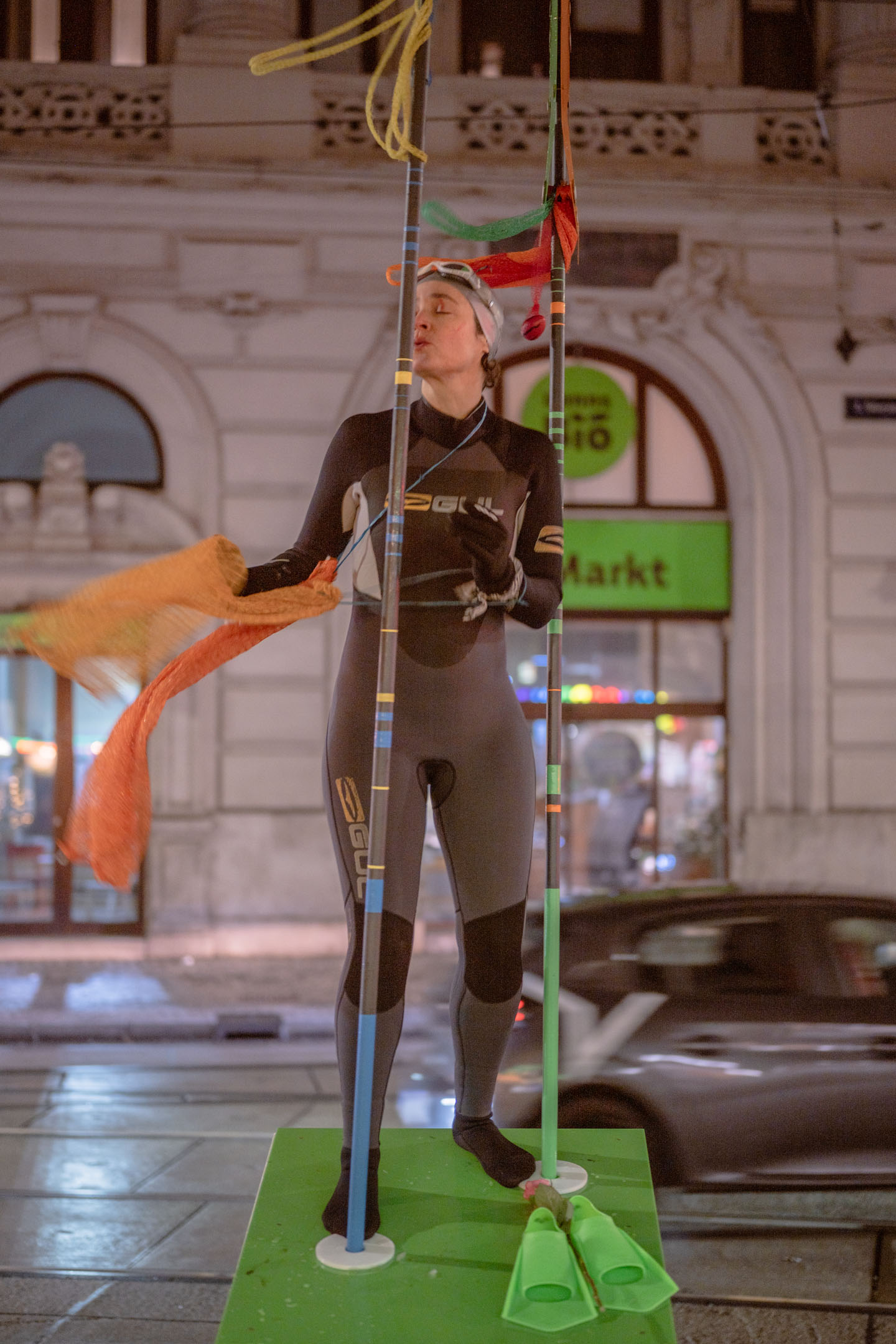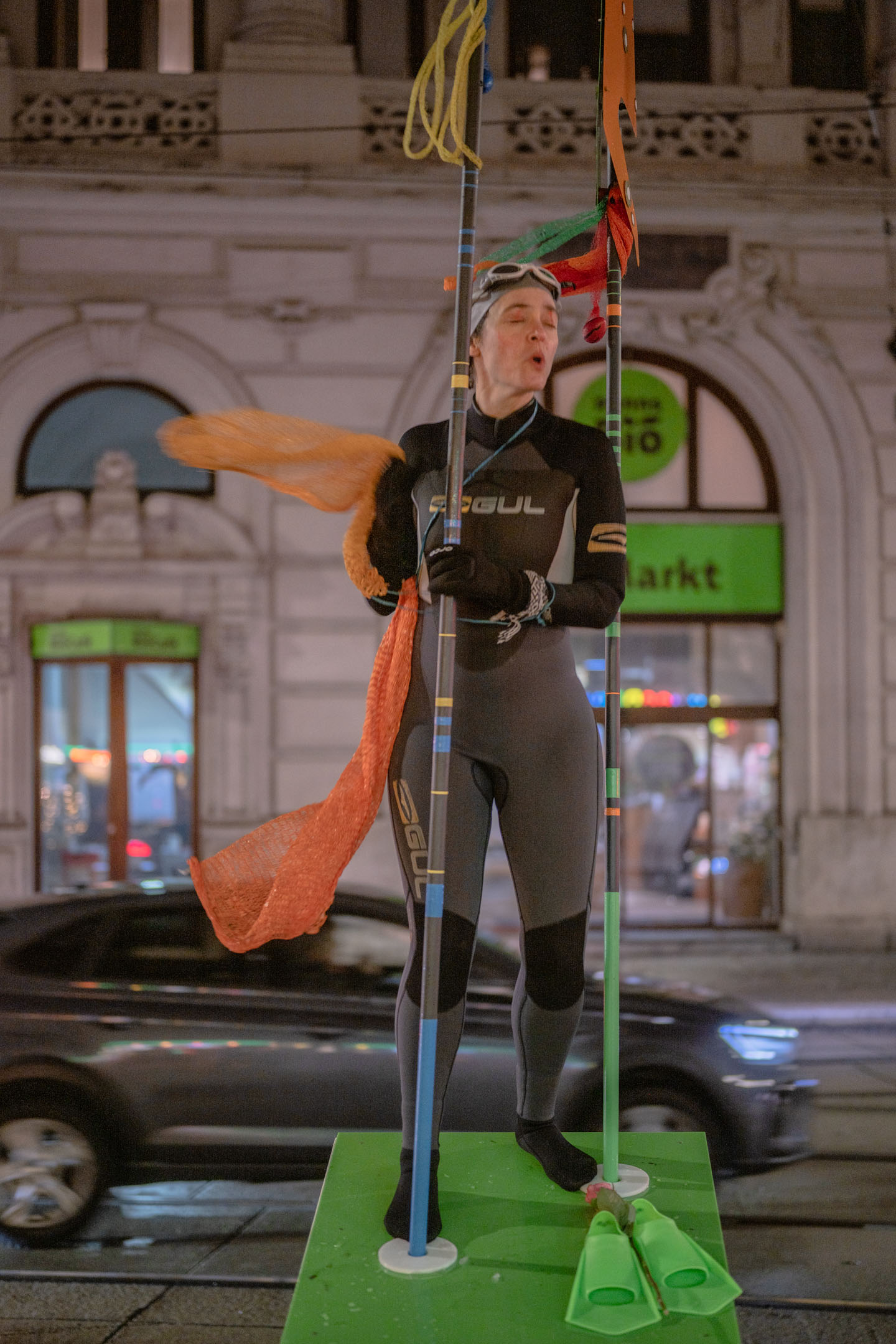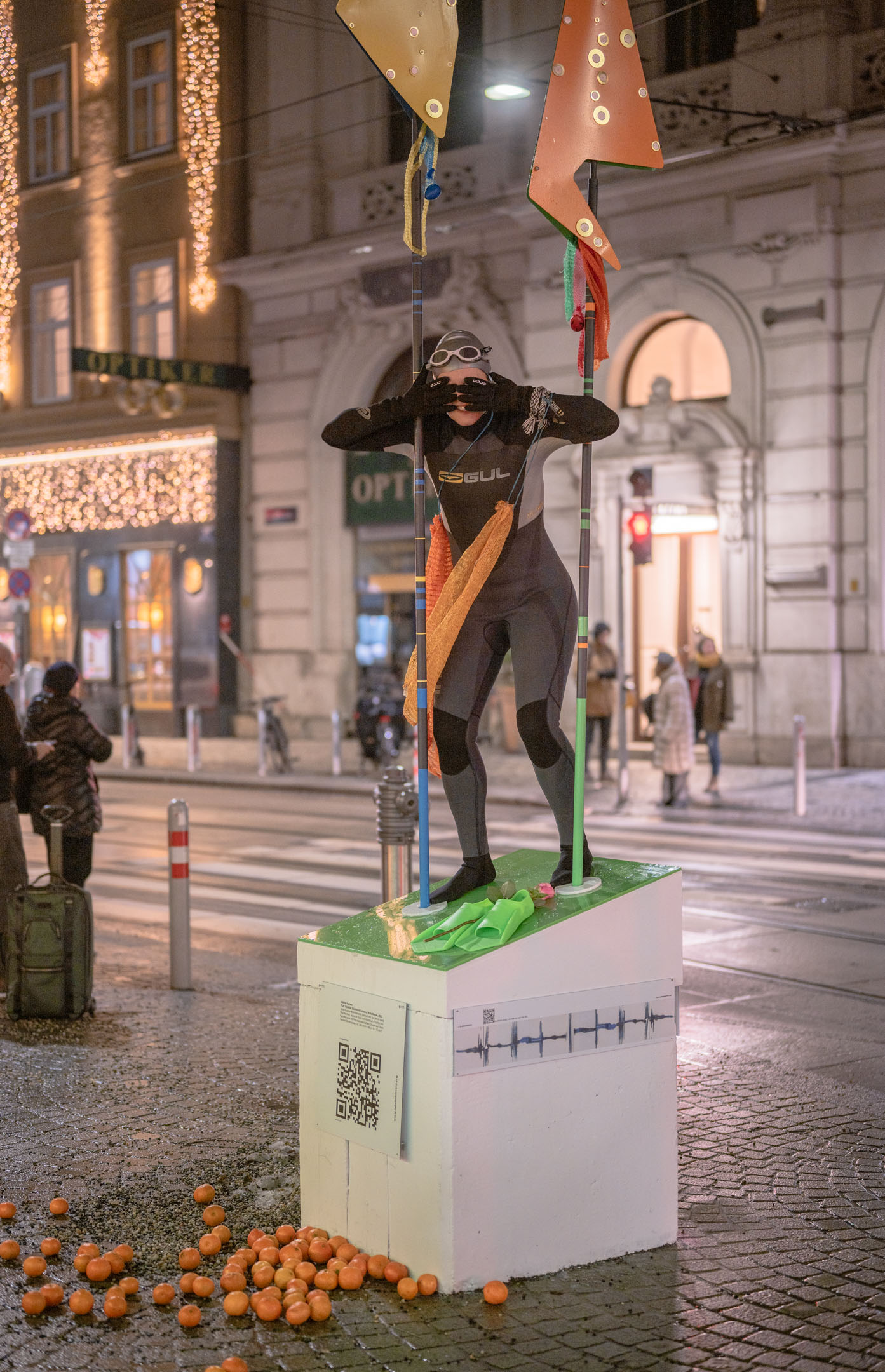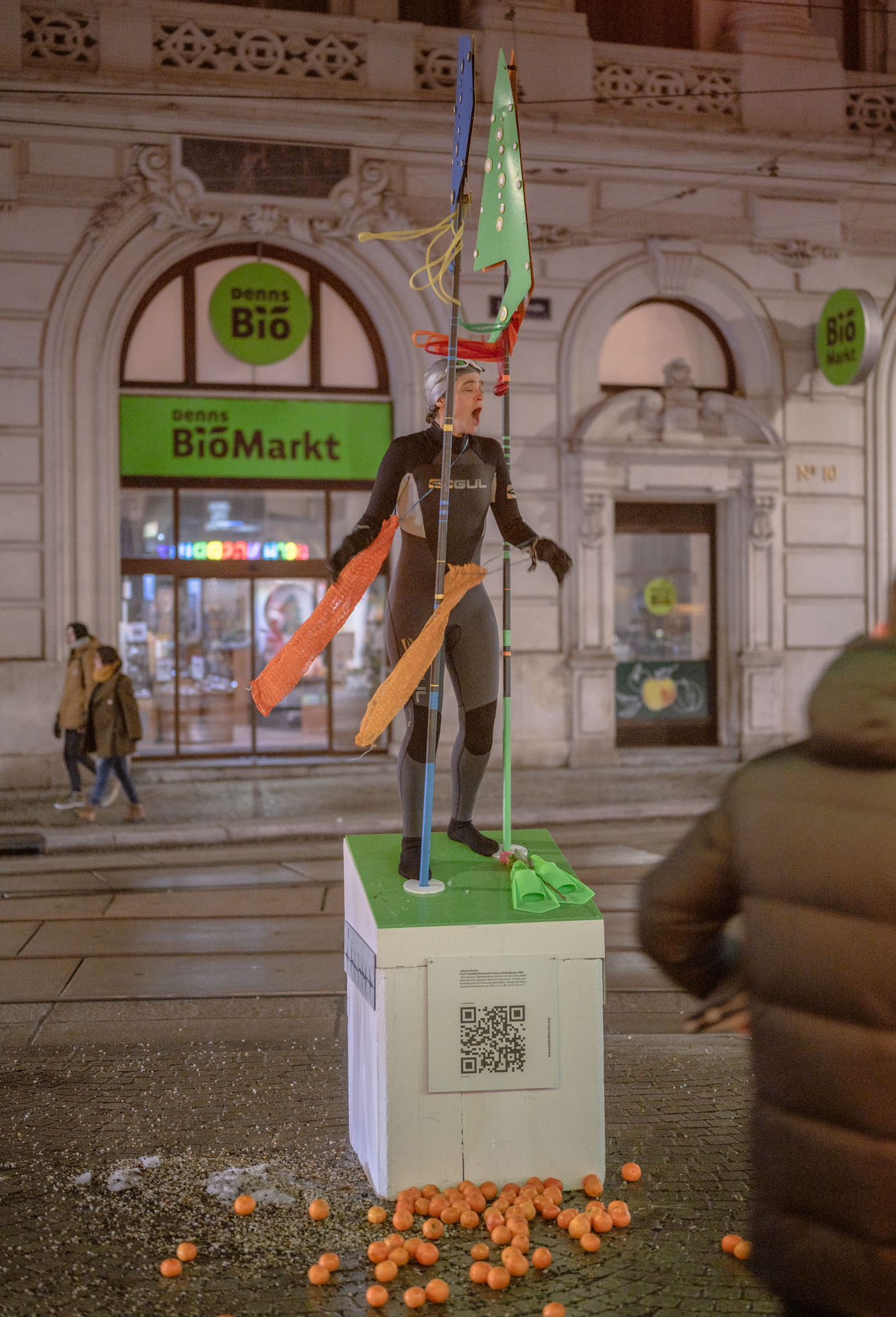
In My Guts
2023 — Performance, 12 minutes
Voice [prosa al viento], swimwear, melodies, fruit offering — urban intervention at the inauguration of Play Please [bichinoid3 urbano] @!die Wende, Vienna
[Sur]realisation within my [your] our [Bichinoide], in front of the former Börse für Landwirtschaftliche Producte — now the ODEON Theatre.
In My Guts is a live performance and atmospheric piece offered as a vocal and ritual activation of the sculptural work Play Please. Rooted in ancestral, pop, and Christian musical traditions, the piece unfolds as a [rogativa] — a performative invocation — with the artist’s voice as the primary instrument. Cultures, credos, and micro-actions intersect in an act of resistance to global capitalist mechanisms.
Mandarins, placed within the performance, symbolise abundance — joy, peace, and nourishment. Their scent perfumed the freezing night air, opening a tender, sensory threshold between the spiritual and material, the individual and collective. Anchored in personal and ancestral memory, the piece weaves together fragments of Moyi Tún papai Inché (learned in childhood in Esquel, Patagonia), Blackbird, and Maria durch ein Dornwald ging, forming a poetic, spiritual soundscape.
Performed in sub-zero temperatures, the work becomes an act of embodied resistance and faith — fragile yet radical. As body, voice, and sculpture converge within the [Bichinoid3] spatial frame, In My Guts creates a moment of surrealised presence: a gesture of remembrance and transformation within the urban landscape.
“For me, it was important to open with mandarins — fruits of the Earth and the labour of humanity — representing the abundance we all and the world need: love, peace, spiritual gifts, and material consistency rooted in Earth. The choice to start and end the vocal parts with Moyi Tún papai Inché reflects the beauty and pain of my native Patagonian ancestors’ history — because we are all folks twined in soul. It doesn’t matter whether you come from the South or the North, the East or the West; Kürüf Tafel sings to all four winds. The natives of Patagonia had a history marked by oppression linked to the conquest of the desert. The Spanish words are excerpts from the original author’s translation. By reinterpreting [chubutano] Valeriano Avilés’ last phrase — ‘there are horses and people, there used to be Tehuelche’ — I sought to bridge gaps and distances, honouring lost heritage and survival.”
Photos © Michael Nagl
